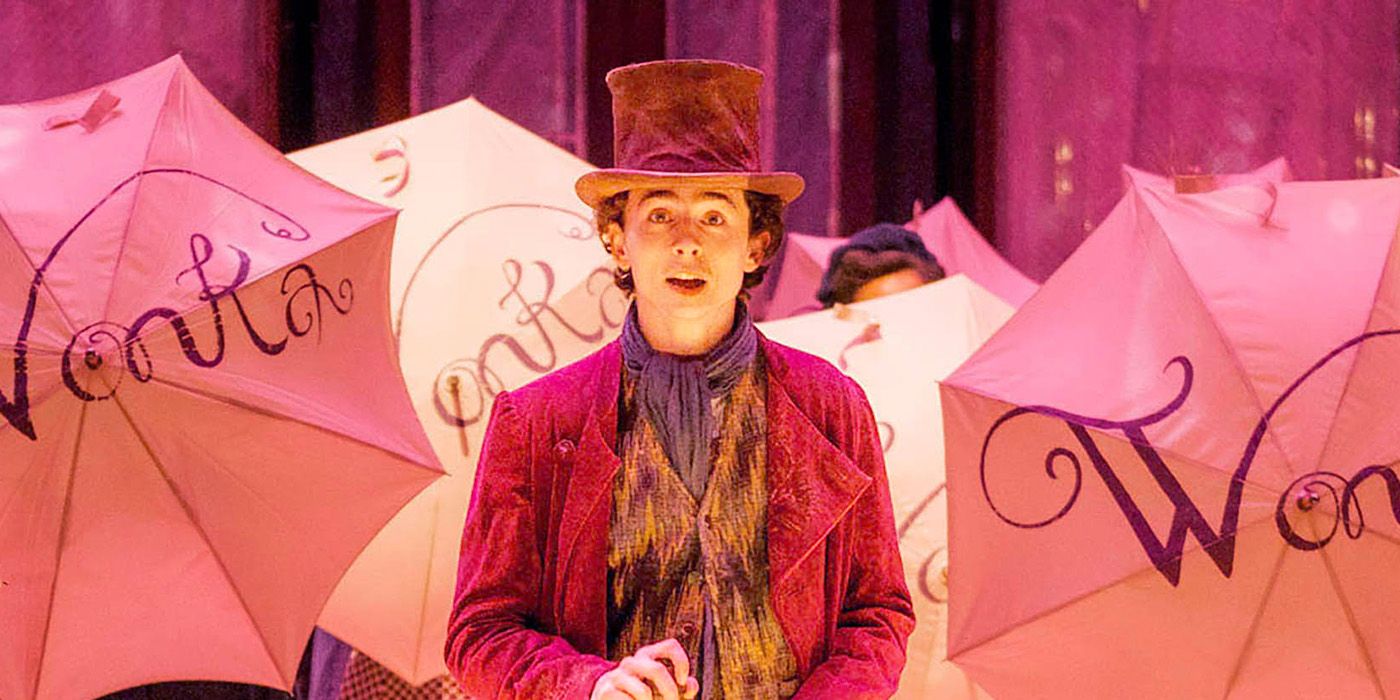Dark Secrets And The Twisted History Of Willy Wonka
The captivating tale of Willy Wonka, the eccentric chocolatier, has captured the imaginations of audiences for decades. But beneath the whimsical facade lies a darker story waiting to be explored.
The "darktory" behind Willy Wonka delves into the unsettling subtext and hidden meanings woven into the beloved children's story. It examines the darker aspects of Wonka's character, his questionable methods, and the underlying themes that resonate with adult audiences.
This exploration sheds light on the psychological complexities of Wonka, his troubled past, and the consequences of his actions. It unravels the hidden truths behind the golden tickets, the enigmatic Oompa-Loompas, and the surreal journey through Wonka's factory.
- Courtney Love And Kurt Cobain Daughter
- February 2 Zodiac
- Red Cup Day 2024
- Fritz American Pickers
- George Jones Cd
| Name | Birth Date | Birth Place | Occupation |
|---|---|---|---|
| Roald Dahl | September 13, 1916 | Llandaff, Cardiff, Wales | Novelist, short story writer, screenwriter, and poet |
The "darktory" of Willy Wonka transcends mere entertainment; it serves as a poignant commentary on human nature, the perils of unchecked ambition, and the consequences of societal isolation.
darktory behind willy wonka
Introduction: Willy Wonka, the eccentric chocolatier, has captivated audiences with his whimsical factory and enigmatic personality. However, beneath the surface lies a darker story waiting to be uncovered.Key Aspects:- Unveiling Wonka's Troubled Past: Exploring the psychological complexities and traumatic experiences that shaped Wonka's character.
- Questioning Wonka's Methods: Examining the ethics behind Wonka's unconventional and often questionable methods of running his factory.
- Unraveling the Hidden Themes: Uncovering the underlying messages about societal norms, isolation, and the pursuit of perfection.
The Oompa-Loompas
Introduction: The Oompa-Loompas, with their orange skin and green hair, are an integral part of Willy Wonka's factory. However, their presence raises questions about exploitation and ethical treatment.Facets:- Origins and Recruitment: Exploring the circumstances that led to the Oompa-Loompas working in Wonka's factory and the potential ethical concerns surrounding their recruitment.
- Working Conditions: Examining the working conditions within the factory, including the long hours, repetitive tasks, and potential safety hazards.
- Cultural Preservation: Discussing the impact of factory life on the Oompa-Loompas' cultural identity and traditions.
The Golden Tickets
Introduction: The golden tickets, the key to Wonka's factory, hold a significant place in the story. However, they also raise questions about manipulation and the fulfillment of selfish desires.Further Analysis:- The Allure of the Golden Ticket: Examining the psychological impact of the golden tickets and how they manipulate the children's desires.
- The Trials and Tribulations: Analyzing the challenges and dangers faced by the children during their journey through the factory, highlighting Wonka's manipulative intentions.
- The Ultimate Prize: Exploring the true nature of the prize at the end of the journey and its implications on the children's personal growth.
darktory behind willy wonka
The "darktory" behind Willy Wonka, the eccentric chocolatier, delves into the unsettling subtext and hidden meanings woven into the beloved children's story. It examines the darker aspects of Wonka's character, his questionable methods, and the underlying themes that resonate with adult audiences.
- Unveiling Wonka's Troubled Past
- Questioning Wonka's Methods
- Unraveling the Hidden Themes
- The Exploitation of the Oompa-Loompas
- The Manipulation of the Golden Tickets
- The True Nature of the Prize
The "darktory" of Willy Wonka transcends mere entertainment; it serves as a poignant commentary on human nature, the perils of unchecked ambition, and the consequences of societal isolation. It explores the psychological complexities of Wonka, his troubled past marked by abandonment and loss, and how these experiences influenced his eccentric behavior. Furthermore, it scrutinizes Wonka's questionable methods, such as exploiting the Oompa-Loompas and putting children through dangerous trials, raising ethical concerns about his pursuit of perfection. The exploration also reveals the hidden themes embedded within the story, commenting on societal norms, the dangers of isolation, and the consequences of unchecked ambition.
- 2kmovie
- Jennifer Garner Ben Affleck Wedding
- Micah Stephen Williams
- Wedding Jesse Metcalfe Wife
- Why Did The Little Couple Get Divorced
| Name | Birth Date | Birth Place | Occupation |
|---|---|---|---|
| Roald Dahl | September 13, 1916 | Llandaff, Cardiff, Wales | Novelist, short story writer, screenwriter, and poet |
Unveiling Wonka's Troubled Past
Delving into Willy Wonka's troubled past is crucial to understanding the "darktory" behind the eccentric chocolatier. His childhood experiences, marked by abandonment and loss, significantly shaped his character and behavior. Exploring this troubled past provides a deeper insight into Wonka's motivations, eccentricities, and questionable methods.
Wonka's traumatic experiences instilled within him a deep-seated fear of abandonment and a longing for connection. These emotions manifested in his obsessive desire for control and perfection, as well as his reclusiveness and isolation. The exploration of his past helps us understand the psychological complexities that drive his actions.
Furthermore, understanding Wonka's troubled past enhances our appreciation of the story's themes. It highlights the consequences of unchecked ambition, the perils of isolation, and the importance of human connection. By unveiling Wonka's past, we gain a nuanced understanding of the character and the story's deeper meanings.
Questioning Wonka's Methods
Scrutinizing Willy Wonka's questionable methods is a central aspect of the "darktory" behind the beloved character. Wonka's unconventional and often unethical practices raise concerns about his true intentions and the consequences of his actions.
- Exploitation of the Oompa-Loompas
Wonka's reliance on the Oompa-Loompas as a cheap and obedient workforce raises ethical concerns. Their working conditions, lack of freedom, and cultural exploitation highlight the darker side of Wonka's factory.
- Dangerous Trials for the Children
Wonka's factory is filled with perilous challenges that put the children's safety at risk. His disregard for their well-being and his willingness to subject them to harm reveal his manipulative and self-serving nature.
- Unethical Business Practices
Wonka's business practices are questionable, including his use of deceptive marketing tactics and his disregard for industry regulations. These actions demonstrate his lack of concern for the well-being of others and his pursuit of profit at any cost.
- Isolation and Control
Wonka's isolation and desire for control extend to his methods of running the factory. He isolates himself from the outside world and exerts strict control over every aspect of his operation, fostering an environment of fear and secrecy.
These facets of Wonka's questionable methods contribute to the "darktory" behind the character. They reveal his manipulative nature, his disregard for the well-being of others, and his pursuit of perfection at any cost. By questioning Wonka's methods, we gain a deeper understanding of the darker aspects of the story and the complex character at its center.
Unraveling the Hidden Themes
Unraveling the hidden themes embedded within the "darktory" behind Willy Wonka is crucial for a comprehensive understanding of the story's significance and its enduring appeal. These themes explore profound and universal aspects of human nature, society, and the pursuit of perfection.
One prominent theme is the exploration of societal norms and the consequences of nonconformity. Wonka's factory represents a microcosm of society, with its own rules, expectations, and rewards. The children who visit the factory are subjected to a series of trials and tribulations that test their character and reveal their true nature. Through these trials, the story highlights the dangers of succumbing to greed, vanity, and selfishness.
Another significant theme is the examination of isolation and its impact on the human psyche. Wonka's isolation from the outside world and his obsessive pursuit of perfection have led him to become aand eccentric figure. The story explores the psychological effects of isolation, including paranoia, emotional detachment, and a distorted sense of reality.
Furthermore, the "darktory" behind Willy Wonka delves into the perils of unchecked ambition and the corrupting influence of power. Wonka's relentless pursuit of perfection and his desire for complete control over his factory and its inhabitants ultimately lead to his downfall. The story serves as a cautionary tale about the dangers of allowing ambition to consume one's life and the importance of finding balance and humility.
In conclusion, unraveling the hidden themes within the "darktory" behind Willy Wonka provides a deeper understanding of the story's complexity and its relevance to contemporary society. These themes explore universal human experiences and challenges, highlighting the importance of empathy, compassion, and the pursuit of a meaningful life beyond material wealth or external validation.
The Exploitation of the Oompa-Loompas
The exploitation of the Oompa-Loompas is a central element of the "darktory" behind Willy Wonka. Their presence in the chocolate factory raises ethical concerns about labor practices, cultural preservation, and the treatment of vulnerable populations.
Wonka's decision to hire the Oompa-Loompas as his workforce stems from his desire for complete control and efficiency. He recruits them from Loompaland, a remote and impoverished land, under the guise of providing them with a better life.
However, the working conditions in Wonka's factory are far from ideal. The Oompa-Loompas are subjected to long hours, repetitive tasks, and hazardous environments. Wonka's disregard for their well-being is evident in his lack of safety measures and his willingness to put them in harm's way.
Moreover, Wonka's exploitation extends to the cultural suppression of the Oompa-Loompas. He forces them to abandon their traditional way of life and adopt his own eccentric customs. This cultural assimilation is a form of erasure that denies the Oompa-Loompas their unique identity.
The exploitation of the Oompa-Loompas is a harsh indictment of unchecked capitalism and the dehumanizing treatment of workers. It highlights the dangers of prioritizing profit over human dignity and the consequences of unchecked power.
In conclusion, the exploitation of the Oompa-Loompas is an integral part of the "darktory" behind Willy Wonka. It reveals Wonka's manipulative nature, his disregard for ethical practices, and his pursuit of perfection at any cost.
The Manipulation of the Golden Tickets
The manipulation of the golden tickets is a central aspect of the "darktory" behind Willy Wonka. Wonka uses the tickets to lure children into his factory, where they are subjected to a series of trials and tribulations. This manipulation serves to highlight Wonka's manipulative nature and his willingness to exploit others for his own amusement.
- Deception and Enticement
Wonka's use of the golden tickets is a form of deception. He presents them as a reward for finding them, but they are actually a trap. The children who find the tickets are lured into Wonka's factory, where they are subjected to a series of trials and tribulations.
- Control and Power
The golden tickets give Wonka complete control over the children who find them. He can dictate the terms of their visit to his factory and subject them to whatever trials he chooses. This power imbalance is a manifestation of Wonka's manipulative nature and his desire for control.
- Exploitation and Amusement
Wonka's manipulation of the children is ultimately for his own amusement. He enjoys watching them struggle and fail, and he uses their fear and desperation to entertain himself. This exploitation is a dark reflection of Wonka's character and his lack of empathy.
- Consequences and Redemption
The manipulation of the golden tickets has serious consequences for the children who find them. They are put in danger, humiliated, and traumatized. However, the experience also teaches them valuable lessons about life and themselves. In the end, the children who are able to overcome Wonka's manipulation are those who learn to be honest, brave, and compassionate.
In conclusion, the manipulation of the golden tickets is a key element of the "darktory" behind Willy Wonka. It reveals Wonka's manipulative nature, his desire for control, and his willingness to exploit others for his own amusement. However, the experience also teaches the children valuable lessons about life and themselves, and ultimately leads to their redemption.
The True Nature of the Prize
In the "darktory" behind Willy Wonka, the true nature of the prize is a significant element that reveals Wonka's manipulative nature and the consequences of unchecked ambition. The exploration of this aspect sheds light on the deeper meanings and themes embedded within the story.
The prize, initially presented as a grand tour of Wonka's chocolate factory and a lifetime supply of chocolate, is ultimately revealed to be a test of character. The children who find the golden tickets are subjected to a series of trials and tribulations that test their virtues and expose their flaws. Wonka's intention is not merely to find an heir for his factory but to manipulate the children for his own amusement.
The true nature of the prize is a reflection of Wonka's own troubled past and his desire for control. Having experienced abandonment and isolation in his childhood, Wonka seeks to recreate these experiences for the children, using the factory as a stage for his psychological games. The prize, therefore, becomes a symbol of Wonka's manipulation and his inability to form genuine connections with others.
The exploration of the true nature of the prize also highlights the dangers of unchecked ambition. Wonka's relentless pursuit of perfection and his desire to create the greatest chocolate factory in the world have corrupted his character and led him to lose sight of what truly matters.
In conclusion, the true nature of the prize in the "darktory" behind Willy Wonka serves as a cautionary tale about the dangers of manipulation, the consequences of unchecked ambition, and the importance of human connection. It reveals the darker aspects of Wonka's character and the complex themes that the story explores.
FAQs on the "Darktory Behind Willy Wonka"
This section addresses frequently asked questions and misconceptions surrounding the "darktory" behind Willy Wonka, shedding light on the deeper meanings and themes within the story.
Question 1: What is the significance of Wonka's troubled past in shaping his character and actions?
Wonka's troubled past, marked by abandonment and isolation, significantly influenced his character. His experiences instilled within him a deep-seated fear of abandonment and a longing for connection. These emotions manifested in his eccentric behavior, obsessive desire for control, and reclusiveness.
Question 2: How does the manipulation of the golden tickets reveal Wonka's darker nature?
The manipulation of the golden tickets is a testament to Wonka's manipulative nature and his desire for control. He uses the tickets to lure children into his factory, where they are subjected to trials that test their virtues and expose their flaws. Wonka's intention is not to find an heir but to manipulate the children for his own amusement.
In conclusion, the "darktory" behind Willy Wonka delves into the complex character of Wonka, exploring the psychological effects of his troubled past and the consequences of his unchecked ambition. It highlights the importance of human connection and the dangers of manipulation and unchecked ambition.
Conclusion
The "darktory" behind Willy Wonka delves into the complex character of Wonka, exploring the psychological effects of his troubled past and the consequences of his unchecked ambition. It highlights the importance of human connection and the dangers of manipulation and unchecked ambition.
Wonka's story serves as a cautionary tale, reminding us of the importance of empathy, compassion, and finding balance in life. It challenges us to consider the consequences of our actions and the impact we have on others.

‘Wonka’ Does This Better Than Any Previous Story About the Chocolate Maker

Willy Wonka charms, Chicken Run a tired rehash, Leave the World Behind

Company behind 'shambles' Willy Wonka experience release new statement